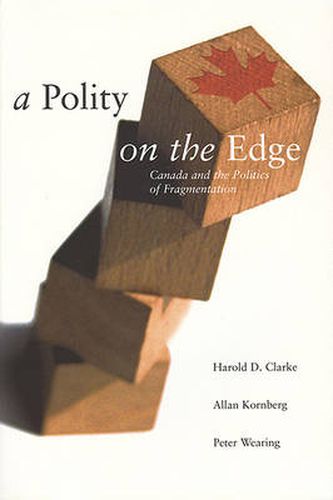Readings Newsletter
Become a Readings Member to make your shopping experience even easier.
Sign in or sign up for free!
You’re not far away from qualifying for FREE standard shipping within Australia
You’ve qualified for FREE standard shipping within Australia
The cart is loading…






Winner: 2001 Choice Outstanding Academic Book Award
This is a book about forces challenging the continued integrity of Canada, one of the world’s oldest and most admired democracies. It focuses on six critical events, beginning with the 1988 federal election and the fierce debate over the risks of free trade with the United States for Canada’s economy and cherished social programs. It ends with the 1998 re-election of the Parti Quebecois and the possibility of a third sovereignty referendum. Collectively, these events have pushed Canada to the edge of disintegration. The book’s analyses and interpretations of these events are based on a unique collection of survey data gathered over the past two decades. Conversations with thousands of Canadians map the dynamics of public beliefs, attitudes and behavior in an era of economic dislocation and political crisis. Struggling to adapt its political institutions and processes to regional and ethno-linguistic cleavages invigorated by forces of economic restructuring and globalization, Canada exemplifies many of the forces from above and below that have beset democracies, new and old alike, in recent years. By explaining how these forces have brought a charter member of that very special political club to the brink of fragmentation, this book will be of interest to all those concerned with the future of democracy in polycommunal societies.
$9.00 standard shipping within Australia
FREE standard shipping within Australia for orders over $100.00
Express & International shipping calculated at checkout
Winner: 2001 Choice Outstanding Academic Book Award
This is a book about forces challenging the continued integrity of Canada, one of the world’s oldest and most admired democracies. It focuses on six critical events, beginning with the 1988 federal election and the fierce debate over the risks of free trade with the United States for Canada’s economy and cherished social programs. It ends with the 1998 re-election of the Parti Quebecois and the possibility of a third sovereignty referendum. Collectively, these events have pushed Canada to the edge of disintegration. The book’s analyses and interpretations of these events are based on a unique collection of survey data gathered over the past two decades. Conversations with thousands of Canadians map the dynamics of public beliefs, attitudes and behavior in an era of economic dislocation and political crisis. Struggling to adapt its political institutions and processes to regional and ethno-linguistic cleavages invigorated by forces of economic restructuring and globalization, Canada exemplifies many of the forces from above and below that have beset democracies, new and old alike, in recent years. By explaining how these forces have brought a charter member of that very special political club to the brink of fragmentation, this book will be of interest to all those concerned with the future of democracy in polycommunal societies.